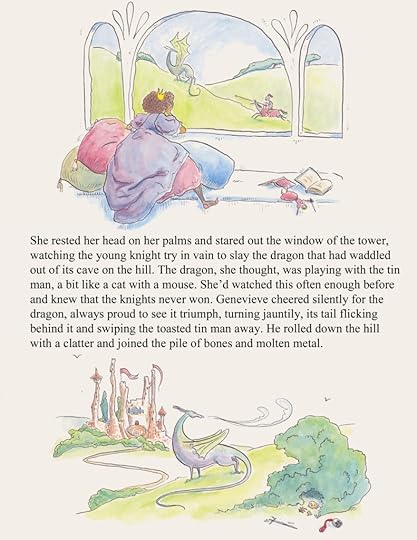Angela Slatter's Blog, page 72
September 30, 2015
A New Experiment …
… with Kathleen Jennings … a series of cards with some of the Bitterwood illustrations on them (my favourites) … we’ll see how they go …
“I herewith attach a badger for your approval.”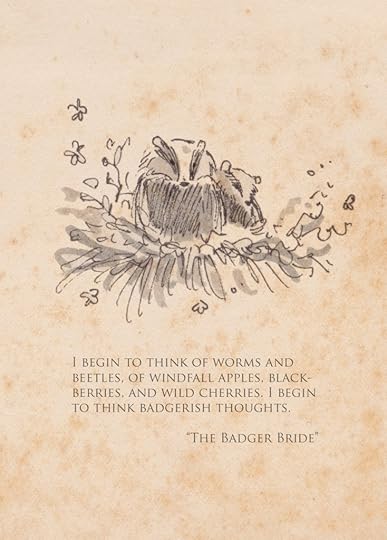
September 25, 2015
Beyond the Woods: Retold Fairy Tales
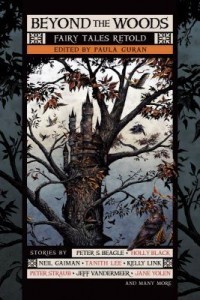 Beyond the Woods: Retold Fairy Tales is a new reprint anthology from the lovely Paula Guran and Night Shade Books.
Beyond the Woods: Retold Fairy Tales is a new reprint anthology from the lovely Paula Guran and Night Shade Books.
It will be out in July 2016, and I’m delighted to say that my story “The Bone Mother” is contained therein, along with tales by the likes of Kelly Link, Jane Yolen, Tanith Lee, Kirstyn McDermott, Neil Gaiman, Jeff VanderMeer, and Peter S, Beagle.
Over at Those Who Run With Wolves …
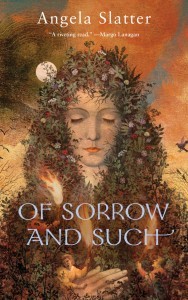 … there’s a gorgeous review of Of Sorrow and Such by the lovely Vida Cruz.
… there’s a gorgeous review of Of Sorrow and Such by the lovely Vida Cruz.
One of the best compliments I can give any story is, “I read it in one sitting”. The same applies for Of Sorrow and Such–it’s got the steady pace of a horse at a clop and it had a vise-like grip on my attention. I won’t spoil the ending, but all I can say is that while it’s not exactly happy, it definitely feels right.
The rest is here.
September 24, 2015
Horrorology Interviews: Jo Fletcher
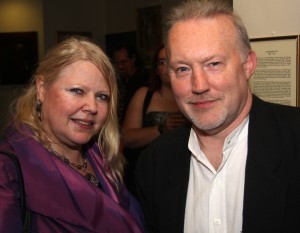
Jo and Steve, (c) Peter Colebron
Today’s final Horrorology post is from the lovely Jo Fletcher, our redoubtable publisher.
This is the third horror anthology you’ve published with Steve as editor – what was your first thought when he proposed Horrorology ?
How the hell do you spell it? And then, How the hell do you spell it the same way every time . . . and then, We need a really good illustrator to go with that calibre of writer. And then, How the hell am I going to explain this to the acquisition committee? Whilst no one in the Quercus editorial team has any part in JFB, and vice versa, I think it’s important that within the company we all know what each other are doing, as I am often surprised – and in a good way – how suggestions and insights can come from the most apparently uninterested people. And in this case, Jon Riley, the Editor-in-Chief of Quercus, who’s an extremely and widely well-read and much lauded editor, said, ‘What a cool idea!’ before I’d even started my pitch! So huge thanks to Jon there. And in fact, once you stop to think about it, A Lexicon of Fear is a very cool idea, and it’s also much easier to explain to booksellers than some proposals I’ve seen . . .
Who have been your favourite horror authors over the years?
Gosh, that’s an impossible question, because it changes from day to day as names I’ve temporarily forgotten edge back up to the surface . . . I’ve always preferred quiet horror to splatter (which isn’t to say that there’s some very visceral horror writing out there which I think is completely brilliant) . . . I suppose the first horror story I ever read for myself was ‘The Snow Queen’, because my grandfather had this beautiful edition of his fairy tales illustrated by Edmund Dulac, and I always thought the pictures were as much a part of the experience as the stories . . . And the other book my grandfather used to read to me was a great tome of myths and legends of the world, also beautifully illustrated, and I particularly remember the eagle, pecking out Prometheus’ liver, stomach, intestines, and so on, only for them to regrow in time for the bird’s dinner the following day . . . I’m all for nurturing the avian population, as you know, but there are limits. Those ancient gods were not just about turning into flora or fauna to have their way with any pretty young thing that happened along; they did a fine line in eternal punishment and retribution too . . . 
And then of course one moves seamlessly on to MR James, Elizabeth Gaskell, Sheridan le Fanu, Algernon Blackwood and Mary Shelley and their ilk, not forgetting Keats, and Milton, and Blake, and Dante, and then we’re into the twentieth century, and the wonderful Edith Nesbit and Edith Wharton, Rudyard Kipling – there’s a Kipling story about a man trapped in a great horseshoe-shaped arena, where the people all live in coffin-shaped and -sized holes in the sides, but he cannot get out, because of the shifting sands . . . I had nightmares for months afterwards, and I have never been able to read it again, just in case . . . and of course HP Lovecraft led me to August Derleth and all the Arkham House writers, and thence to the young pretenders, like Ramsey Campbell and the of course, Charles L. Grant, the master of quiet horror, and I’m not even a quarter of the way through the first shelf of a very substantial bookcase and I am missing out so many astonishingly wonderful names, like Manly Wade Wellman and Karl Edward Wagner, and then there’s the even younger Young Turks . . . [voice fades away and three days later fades back in] . . . and Lisa Morton and Robert Shearman and Tom Fletcher and Nancy Holder and Alison Littlewood and Kim Wilkins, and of course I must end on the redoubtable Angela Slatter!
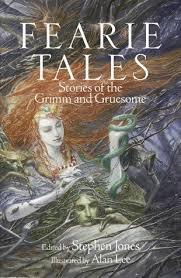 What made you want to publish an anthology of this sort?
What made you want to publish an anthology of this sort?
It’s still very hard to publish horror in Britain. The whole genre crashed and burned at the start of the nineties, after two decades of being able to publish pretty well anything with a haunted house or psycho killer in the description . . . but publishers were so desperate to reap the rewards that editors who knew nothing whatsoever about the history of the genre and what’d gone before were just buying and publishing anything they could get their grubby little hands on – this, by the way, is not specific to horror; name any bandwagon and you won’t need me to point out those trying to hitch a ride without understanding the direction it’s headed (I’m now going to ditch this analogy before all the wheels come off!). So where were we? Oh yes, why? Well, I’m pleased to see that interest in the genre has been slowly creeping back – we’re not talking about Number One bestsellers (well, except for Stephen King, of course, although I think everyone will admit he’s paid his dues). What I mean is that we’re at that stage where if I bring a horror project into an acquisition meeting, we will all actively consider it, and as I’m not going to bother bringing forward anything but those books I truly believe to be magnificent, we might even agree to take it on. So I think my task is to start reintroducing horror into the country’s literary diet – as one of its five-a-day, along with fantasy, SF, crime, and historical fiction (romantic fiction for desert, obviously!), and what better way to do that than with Stephen Jones, one of the world’s most critically acclaimed anthology editors, collecting together some of the world’s best writers of short horror fiction, including Clive Barker, who is himself a legend . . . I think the better question is Why wouldn’t you?
You’re offered the chance to visit the Library of the Damned
?
do you accept? 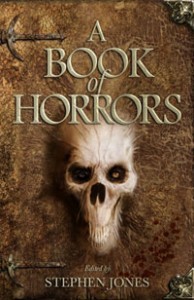
Damn straight!
The future of horror is . . . ?
Slow and steady, and most important, never let the quality drop. After all, people still love being scared – as long as they know they can turn the light back on at the end of the story . . .
Pre-order your copy of Horrorology: The Lexicon of Fear here!
Over at The Book Smugglers …
September 23, 2015
New Storybook Project
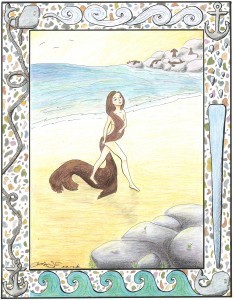
Carolyn Emerick’s lovely Selkie
Time to move forward! Kathleen Jennings and I have decided it’s time to start a new storybook. So, we’ll be working on “Skin” next week on our Avid Bookshop work day, which was one of my short stories. Originally published in The Lifted Brow in 2008, it feels like a perfect tale to have a new life. So: selkies and revenge.
Skin
I was sixteen when he plucked me from the sea.
Caught in his fisherman’s net, I thought I would drown until he lifted me into the too-small boat and began to hack at the rough fibres to release me. I should have known then how soft his heart was, to see him ruining a net so, but I was terrified. In his haste he cut me, split the skin down by my tail a good eight inches and saw the two fine-boned ankles lying within. He sat back, astonished, and I fought my way free of the pelt until I was naked and shivering in my human skin, huddled at the bottom of that little, little boat.
His family told him to throw me back, to return my other skin and send me home. He refused.
Horrorology Interviews: Nicola Budd
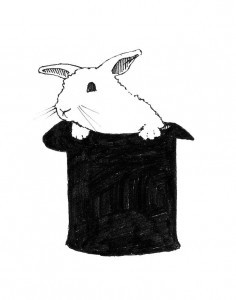
Art by Nicola Howell
The delightful Nicola Budd is not only an excellent artist, but also an editor with Jo Fletcher Books. Horrorology was a major new project for her and here she talks about the experience.
So this is the second book you’ve helmed for JFB – is this your first anthology?
It is the first anthology I have taken charge on, but not the first anthology I’ve worked on for JFB, as I’ve also worked on the other wonderful anthologies from Steve: A Book of Horrors, Curious Warnings and Fearie Tales. The anthologies have been some of my favourite titles to work on so far because you get a taste of different authors’ writing (though that does come with its own challenges!), and for me, at least, it also helps a lot to break the editing down into more manageable chunks and keep it interesting.
What are the challenges of editing such a diverse anthology?
This is a good question! Steve does most of the editing on these anthologies, so it comes to me in a pretty clean state. Having said that, I do find it a challenging when there isn’t just one style of writing, as you have to get into the flow of so many different ideas and consider every author’s opinion. It can also be hard to maintain consistency across the stories – JFB has a house style we like to adhere to, and there are certain words that can be spelled differently, but should be uniform across the book. Creating the style sheet is a nightmare.
However, any challenges are pretty much offset by how interesting a project like this is to work on!
How much input have you had into the selection of internals and cover art?
This one was something of a team effort. Clive Barker sent us the internals we could use, then Steve, Jo and I each picked our favourites separately. Then we had a very business-like meeting (in a pub) over a bottle (a few bottles) of wine, and it turned out Clive had sent over some further images – so we just dropped everything we were going to do and went with those. Then Steve showed us the amazing visuals that he wanted for the cover and after a couple of questions we all agreed on those, too. Then Patrick Carpenter turned them into the cover you see today. Et voila – team effort image picking.
As for the typesetting style and internal text (fonts etc.), I’m going to claim the credit for that myself (selfish I know, but if I’m going to claim anything, it’s going to be that!), but it’s the typesetters who make my vague ideas for ‘medieval texts’ and ‘stone-cut fonts’ look so good.
What’s it like working with JFB? 
I love working for Jo Fletcher Books. I sometimes can’t believe I hit the jackpot so early on in my career – working on books I love with some of the best and loveliest authors out there. I find some people have a bit of a stigma when it comes to SF, Fantasy and Horror, but sometimes they still have an old idea of what these genres mean; they have moved on so much since the early days and it’s such a pleasure to work on everything from Fantasy/Crime and Mystery crossovers (Lisa Tuttle – you, Angela! Can’t wait to release Vigil next year) to SF romance (Karen Lord), to novels that just can’t be defined (City of Stairs). Jo has done a brilliant job of finding something for everyone and it certainly keeps me on my toes!
The future of the book is …?
Wow, if I knew I suspect I’d be being paid a lot more than I am . . . and possibly be a god of some sort.
September 22, 2015
Flight – The Pointy End
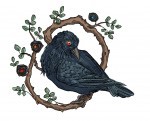 And now we’re at the pointy end of the publishing process. The designers are making final tweaks to the layout, we’re gathering cover quotes, finalising cover design, and just waiting for the moment when the printer gets his hands on the files.
And now we’re at the pointy end of the publishing process. The designers are making final tweaks to the layout, we’re gathering cover quotes, finalising cover design, and just waiting for the moment when the printer gets his hands on the files.
The gorgeous Kate Forsyth, she of Bitter Greens, The Wild Girl, and The Beast’s Garden fame, has provided us with this gorgeous cover quote, which is enough to make you feel you can die quite, quite happy:
FLIGHT is a miracle of beauty, created by two creative artists at the peak of their powers. Angela Slatter’s enchanting story of a princess who is turned into a raven is perfectly complemented by Kathleen Jennings’s exquisite illustrations. The story has all the timeless appeal of a classic fairy tale, with fresh and surprising twists that make it entirely modern. A must-have addition to any collection of beautiful fairy tales!
And this one of my favourite illustrations (who am I kidding, I love them ALL!):
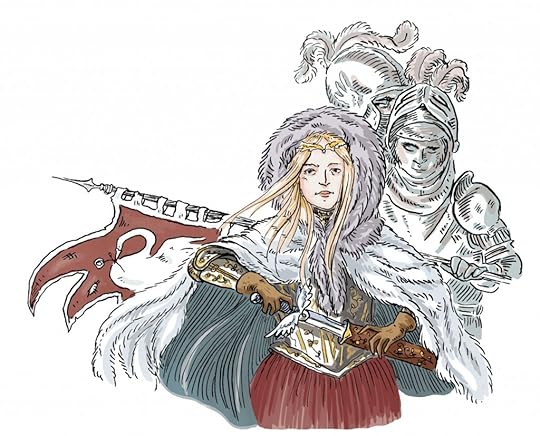
“You should know,” continued the Black Bride, her touch stilled, “that she raised an army to find you. Your father failed and wept, wasted away—trust me, my girl, I have my spies. But she, oh she mobilized their vassals, rode at their head, slept in the saddle, scoured all the lands that could be covered by foot and sea. I’ll warrant she’d have given her very soul to take to the skies if it meant she might find you that way.”
Horrorology Interviews: Angela Slatter
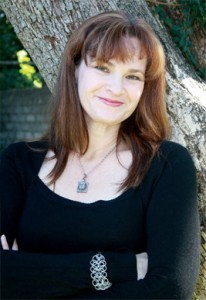
Angela Slatter (Photo by David Pollitt, June 2010)
Angela Slatter is … well, me. Here I ramble on about my Horrorology novella, “Ripper”.
What was the inspiration for your Horrorology tale “Ripper”?
Well, it had a bit of a convoluted beginning: I was writing the story under another title for another publisher and when I got to the end I thought ‘It doesn’t precisely fit.’ Steve Jones wrote to me in the meantime, with the Horrorology pitch and I thought ‘It does precisely fit there.’ So the novella was re-titled “Ripper” and went to a new home (rest assured, the other publisher has been furnished with an equally lovely novella … of course, when I say ‘lovely’, I mean ‘creepy’).
The inspiration was, fairly obviously, the Jack the Ripper murders. As a policeman’s child with deep, dark interests this was naturally the sort of historical event that caught my attention (and the Yorkshire Ripper later on). I’d read Kim Newman’s “Red Reign” as a teenager and I think there’s an element of homage in “Ripper”. There are so many theories about this serial killer, and there’ve been so many stories about him/her, it was hard to find my way to adding to the literature — or rather feeling I had an idea that would do justice to everything that’s gone before. I think I got it right.
Can you remember the first story you read that made you think “I want to write!”?
That’s really awfully hard. Maybe The Wolves of Willoughby Chase by Joan Aiken? Or perhaps A Wrinkle in Time by Madeleine L’Engle? I read a lot of MR James’ ghost stories as a child in various anthologies, so perhaps something by him. I do remember reading “The Tower” by Marghanita Laski in high school and being seized by the idea that maybe it was something I could do — the desire to write and the idea that I could write were definitely two separate moments.
Is horror a sort of natural home for you or do you lean more towards another part of speculative fiction? 
It does seem to be … or at least I’ve washed up here. I started out in fairy tales (actually, I started out writing chick lit, but don’t tell anyone), and I really feel that fairy and folk tales are the ancestors of horror. Think about it: your mother sends you off to starve in the forest; your father wants to marry you; you are forced to wear red hot iron shoes and dance yourself to death; you’re punished for being vain by being given a pair of dancing shoes you can’t take off so you ask someone to cut off your feet to save you … I rest my case.
The darkness has always been more interesting to me as a source of tales.
You’re offered the chance to visit the Library of the Damned — do you accept?
Is there cake? Or donuts? And coffee, good coffee … actually that would be the absolute embodiment of damned: gluten-free cake, stale donuts and cold instant coffee. And probably a very strict librarian shushing you every time you complained. I think Lisa Tuttle was right about checking TripAdvisor first.
The future of horror is … ?
Who wrote these questions?? It’s Lisa L. Hannett, Helen Marshall, Damien Angelica Walters, Gemma Files, Mercedes Murdock Yardley; it’s Robert Shearman and Rio Youers, Mark Morris and Johnny Mains, Kaaron Warren and Margo Lanagan … it’s all the folk who come out to play after dark.
Pre-order your copy of Horrorology: The Lexicon of Fear here!
Some exciting news!
 Kathleen Jennings and I have signed with the most excellent Alex Adsett Publishing Services for the representation of our illustrated works!
Kathleen Jennings and I have signed with the most excellent Alex Adsett Publishing Services for the representation of our illustrated works!
That means Genevieve and the Dragon will have someone to find them a home, and future illustrated books such as Skin, Words, and Bluebeard’s Daughter will also have someone to look after them.
Huzzah!
